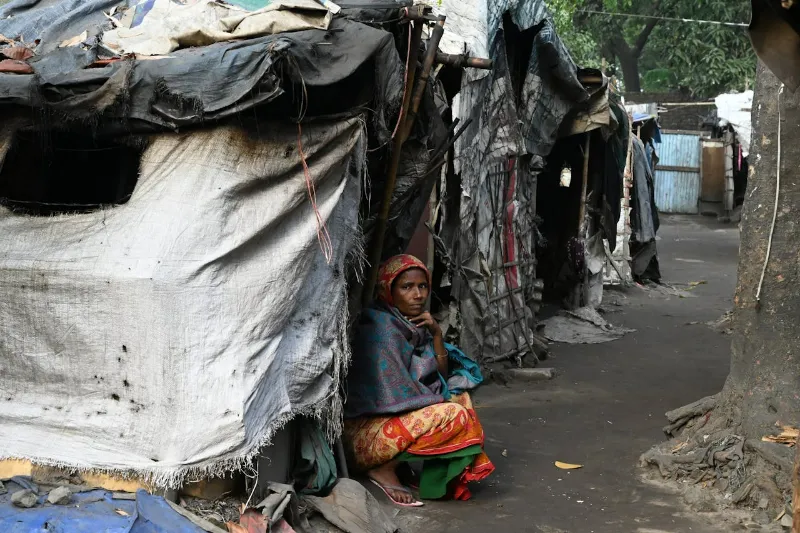Food safety and quality management remain urgent and critical issues for Bangladesh. These challenges are further exacerbated by global influences, including climate change, market dynamics, and technological disparities, necessitating immediate attention and action. From manufacturing to patron delivery, each step includes extensive hurdles. Addressing those troubles calls for a sturdy and inclusive plan that involves collaboration among stakeholders.
Contents
- The Plight of Small Farmers
- Legal Framework and Implementation Challenges
- The Role of BSTI in Food Quality Control
- HACCP: An International Standard for Food Safety
- Addressing Supply Chain Inefficiencies
- Bridging Financial and Technological Gaps for Farmers
- Combatting the Impact of Climate Change
- Raising Awareness of Food and Nutrition
- The Way Forward
- Last Remarks
The Plight of Small Farmers
Bangladesh’s financial system leans closely on agriculture, mainly the contributions of small farmers. Yet, those farmers face severe demanding situations:
- Lack of Modern Resources: Many small farmers lack access to superior farming technology, super seeds, and contemporary cultivation methods.
- Climate Vulnerability: Farmers are regularly at the mercy of weather change, which leads to droughts, floods, and cyclones that threaten agricultural output.
- Financial Constraints: Limited access to credit scores and economic sources makes it challenging for farmers to invest in stepped-forward strategies or equipment.
These elements make food production unstable and pose a habitual risk to the country’s food security. Addressing these issues includes supplying farmers with modern equipment, economic aid, and educational farming practices.
Legal Framework and Implementation Challenges
Bangladesh has legal guidelines like the 2013 Food Safety Act, which intends to ensure meal quality and protection. However, the effectiveness of these legal guidelines is limited due to:
- Weak Enforcement: Insufficient inspections and tracking prevent compliance.
- Resource Limitations: Uncertainty of inspectors and insufficient economic sources constrain regulatory agencies.
- Awareness Gaps: Many small manufacturers and enterprise proprietors are unaware of meal protection legal guidelines and pointers.
Addressing these implementation challenges calls for increasing enforcement capacity, improving inspector training applications, and raising awareness among meal manufacturers.
The Role of BSTI in Food Quality Control
The Bangladesh Standards and Testing Institution (BSTI) plays a pivotal role in ensuring food quality by setting standards, conducting product tests, and providing guidance to manufacturers.

- Setting Standards: Establishing pointers for meal merchandise to maintain quality.
- Testing and Certification: Conducting product checks to ensure compliance with requirements.
- Providing Guidance: Offering acceptable development recommendations to manufacturers.
However, small organizations regularly struggle to satisfy BSTI requirements due to a lack of information or economic constraints. This gap in compliance impacts nearby customers and limits Bangladesh’s ability to compete in worldwide markets. Increasing outreach and providing subsidies or economic incentives can assist small manufacturers in adhering to these requirements.
HACCP: An International Standard for Food Safety
Hazard Analysis and Critical Control Points (HACCP) is a globally recognized system that identifies potential dangers in meal practices and implements measures to control them. Benefits of adopting HACCP include:
- Enhanced Food Safety: Reducing infection dangers during manufacturing.
- International Market Access: Aligning with worldwide requirements to facilitate exports.
- Consumer Confidence: Improving public trust in meal merchandise.
Implementing HACCP in Bangladesh’s food industry would require investments in training, technology, and focus applications.
Addressing Supply Chain Inefficiencies
An extensive part of food loss in Bangladesh occurs due to inefficiencies in the supply chain, including:
- Inadequate Infrastructure: Poor roads and transportation facilities hinder effective meal distribution.
- Lack of Cold Storage: Insufficient storage results in spoilage of perishable goods.
- Transportation Challenges: Limited availability of refrigerated vehicles exacerbates food waste.
Improving infrastructure and logistics will benefit producers and consumers by reducing waste and ensuring timely delivery of quality food.
Proposed Solutions
| Problem | Solution |
|---|---|
| Poor road conditions | Investment in infrastructure |
| Lack of cold storage | Build modern storage units |
| Transportation gaps | Introduce refrigerated trucks |
Bridging Financial and Technological Gaps for Farmers
Financial and technological support is vital for empowering small farmers. Key tasks include:
- Access to Credit: Simplifying loan procedures and supplying low-interest rates.
- Technology Adoption: Introducing affordable farming equipment and machinery.
- Training Programs: Educating farmers on sustainable practices and modern strategies.
These measures will not only enhance productivity but also contribute to the long-term sustainability of the agricultural sector.
Combatting the Impact of Climate Change
Bangladesh’s geographical location makes it particularly vulnerable to climate change. Natural disasters, including floods, cyclones, and droughts, disrupt both food production and delivery chains. Practical strategies to mitigate these effects include:
- Climate-Resilient Farming: Promoting practices that withstand adverse conditions.
- Drought-Resistant Crops: Developing and distributing seeds suited for extreme weather.
- Coastal Protection: Planting mangroves to prevent soil erosion and reduce cyclone damage.
Implementing these strategies to combat climate change requires concerted efforts and collaboration among government, non-profits, the private sector, and other stakeholders.
Raising Awareness of Food and Nutrition

Education about food and nutrition is essential for enhancing public health. Many people remain unaware of the importance of a balanced diet. Strategies to raise awareness include:
- Incorporating Nutrition Education: Adding food and nutrition subjects to school curriculums.
- Media Campaigns: Using television, radio, and social media to promote healthy eating habits.
- Community Programs: Conducting workshops in rural areas to teach families about nutrition.
The Way Forward
Ensuring food safety and security in Bangladesh requires a multi-faceted, collaborative approach. Key actions include:
- Strengthening Legal Frameworks: Improve enforcement mechanisms for meal protection laws.
- Empowering Farmers: Provide financial and technological support to small farmers.
- Enhancing Infrastructure: Invest in roads, cold storage, and transportation facilities.
- Adopting Global Standards: Encourage the implementation of HACCP in meal manufacturing.
- Raising Public Awareness: Promote nutrition education and healthy eating habits.
By addressing these areas, Bangladesh can build a stronger, more resilient food system. This will not only enhance public health and ensure food safety but also contribute to economic stability, offering a promising future for all.
Last Remarks
Food security is not just a national issue but a global concern. Bangladesh’s journey toward a sustainable and equitable food system requires collaboration, innovation, and persistence. Let’s work together to ensure a better future for all.
